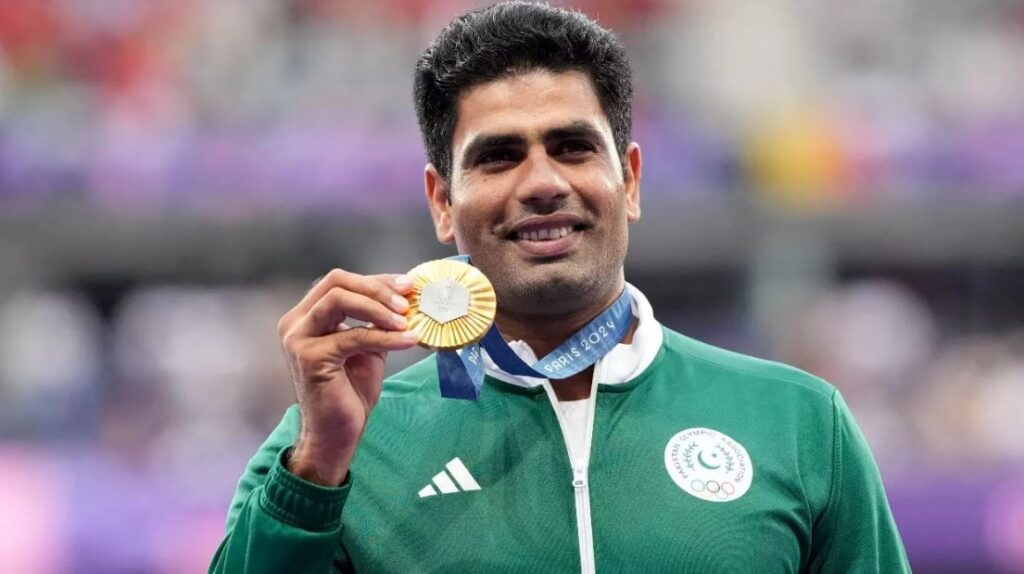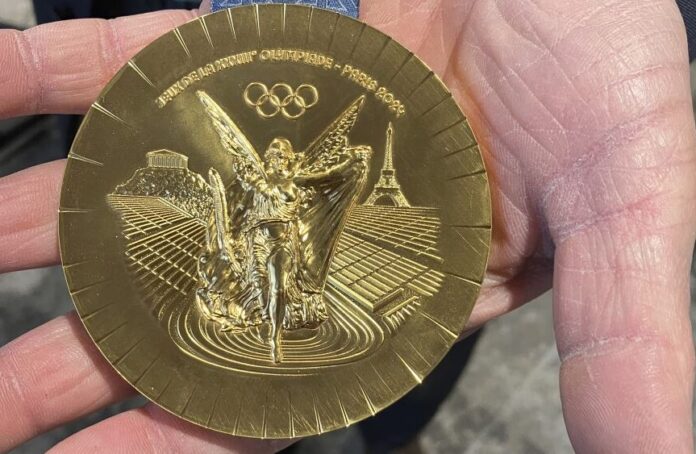For athletes, the Olympic podium represents the pinnacle of a lifetime of dedication, effort, and sacrifice. At the Paris Summer Games, victorious athletes were not only awarded medals but also a box containing the official poster of the Games. However, the rewards extended far beyond these tokens of success.
Over 40 nations rewarded their Olympic champions with financial bonuses, with more than 25 offering over $100,000 to those who brought home gold. In comparison, the United States awarded its gold medalists $37,500, placing Team USA 35th on the list of the most generous nations. This is notably more than what athletes from countries like Great Britain, Sweden, and Norway receive—these nations offer no bonuses at all.
Also Read: Novak Djokovic Breaks Record for Most Wins at Arthur Ashe Stadium in U.S. Open Opener
As the Paralympics prepare to kick off, let’s take a closer look at some of the most remarkable—and less impressive—rewards athletes earn for achieving Olympic glory.

Beyond the Medal: Financial Windfalls for Olympic Champions
In sports like fencing, not typically known for large financial rewards, athletes from Hong Kong returned with more than just medals. Thanks to the generosity of the city-state and the Hong Kong Jockey Club, gold medalists Cheung Ka Long and Vivian Kong each received HK$6 million, approximately $770,000. Even Hong Kong’s bronze medalists were rewarded handsomely, receiving HK$1.5 million (over $190,000) each, along with free lifetime railway tickets from MTR.
However, these payouts pale in comparison to what some other nations offer. Saudi Arabia, for instance, promises a staggering five million riyals (around $1.3 million) to its first Olympic gold medalist. Tareg Hamedi, who won a silver medal in karate at the Tokyo 2020 Games, became a millionaire overnight when Crown Prince Mohammed bin Salman decided he deserved the same reward reserved for gold medalists.
Asia stands out as the most generous continent, with six of the top 10 payouts at this year’s Olympics coming from the region. Notably, Georgia is the only European country to break into the top 10, while Serbia and Italy offer substantial but slightly smaller bonuses.
Rewards Reflect National Pride
Countries with fewer historical successes in the Olympics tend to be more generous to their athletes. Filipino gymnast Carlos Edriel Yulo, who won two gold medals in Paris, was awarded 10 million pesos (around $178,300) by the government—the only golds ever won by a male Filipino athlete. Filipino President Ferdinand Marcos further added 20 million pesos, bringing Yulo’s total reward to over $535,000. Beyond the cash, Yulo has been showered with gifts, including a condo, university credits, free ramen, colonoscopies for life, and even a set of headlights.
Perks Beyond Cash: National Pride Rewards
The Philippines isn’t alone in offering non-financial perks. South Korean gold medalists receive around $50,000 and an exemption from mandatory national service. Meanwhile, athletes from Kazakhstan and Tajikistan are rewarded with apartments, while Uzbekistan’s medalists are given cars—the value of which increases with the level of the medal won. Romanian billionaire Ion Țiriac also honored his promise, gifting Hyundai vehicles to every Romanian medal winner.
Polish gold medalists were awarded 250,000 złoty (around $65,000), a two-bedroom apartment, a painting, and a holiday voucher. Silver and bronze medalists received smaller rewards but missed out on the apartments.
Competing for Glory and Rewards
For athletes seeking significant financial rewards, competing for nations like Hong Kong or Saudi Arabia offers the highest payouts. However, for those interested in perks like lifetime healthcare and other unique rewards, making history for countries like the Philippines may be the best path.



